Related Research Articles
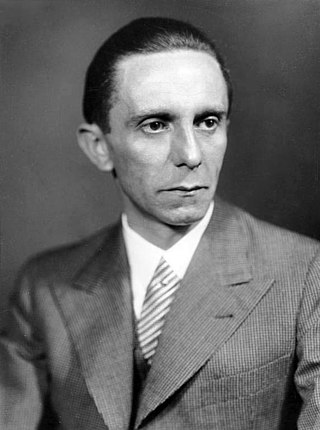
Paul Joseph Goebbels was a German philologist and Nazi politician who was the Gauleiter of Berlin, chief propagandist for the Nazi Party, and then Reich Minister of Propaganda from 1933 to 1945. He was one of Adolf Hitler's closest and most devoted followers, known for his skills in public speaking and his deeply virulent antisemitism which was evident in his publicly voiced views. He advocated progressively harsher discrimination, including the extermination of the Jews in the Holocaust.
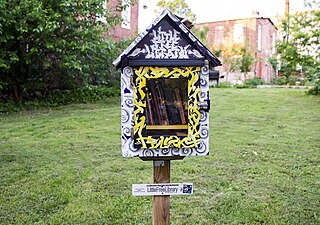
The sociology of knowledge is the study of the relationship between human thought, the social context within which it arises, and the effects that prevailing ideas have on societies. It is not a specialized area of sociology. Instead, it deals with broad fundamental questions about the extent and limits of social influences on individuals' lives and the social-cultural basis of our knowledge about the world. The sociology of knowledge has a subclass and a complement. Its subclass is sociology of scientific knowledge. Its complement is the sociology of ignorance.

Karl Mannheim was an influential Hungarian sociologist during the first half of the 20th century. He is a key figure in classical sociology, as well as one of the founders of the sociology of knowledge. Mannheim is best known for his book Ideology and Utopia (1929/1936), in which he distinguishes between partial and total ideologies, the latter representing comprehensive worldviews distinctive to particular social groups, and also between ideologies that provide support for existing social arrangements, and utopias, which look to the future and propose a transformation of society.
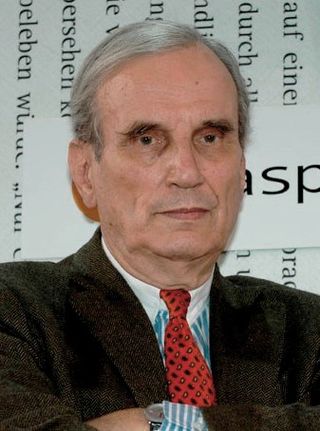
Joachim Clemens Fest was a German historian, journalist, critic and editor who was best known for his writings and public commentary on Nazi Germany, including a biography of Adolf Hitler and books about Albert Speer and German resistance to Nazism. He was a leading figure in the debate among German historians about the Nazi era. In recent years his writings have earned both praise and strong criticism.

Norbert Elias was a German sociologist who later became a British citizen. He is especially famous for his theory of civilizing/decivilizing processes.
Helmut Schelsky, was a German sociologist, the most influential in post-World War II Germany, well into the 1970s.
Reinhard Bendix was a German-American sociologist.
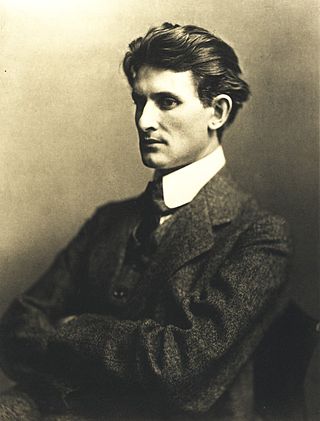
Friedrich Gundolf, born Friedrich Leopold Gundelfinger was a German-Jewish literary scholar and poet and one of the best known academics of the Weimar Republic.
Edward Albert Shils was a Distinguished Service Professor in the Committee on Social Thought and in Sociology at the University of Chicago and an influential sociologist. He was known for his research on the role of intellectuals and their relations to power and public policy. His work was honored in 1983 when he was awarded the Balzan Prize. In 1979, he was selected by the National Council on the Humanities to give the Jefferson Lecture, the highest award given by the U.S. federal government for distinguished intellectual achievement in the humanities.
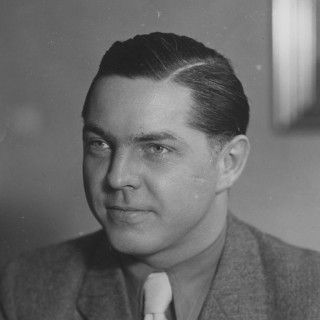
Fritz Hippler was a German filmmaker who ran the film department in the Propaganda Ministry of Nazi Germany, under Joseph Goebbels. He is best known as the director of the propaganda film Der Ewige Jude .
Kurt Riezler was a German philosopher and diplomat. A top-level cabinet adviser in the German Empire and the Weimar Republic, he negotiated Germany's underwriting of Russia's October Revolution and authored the 1914 September Program which outlined German war aims during World War I. The posthumous publication of his secret notes and diaries played a role in the "Fischer Controversy" among German historians in the early 1960s.
Ernest Manheim, known as Ernő until 1920, Ernst until 1934, and then Ernest in the United States, was an American sociologist, anthropologist, and composer born in Hungary, at that time part of the Austro-Hungarian Empire.
Kurt Heinrich Wolff was a German-born American sociologist. A major contributor to the sociology of knowledge and to qualitative and phenomenological approaches in sociology, he also translated from German and from French into English many important works by Georg Simmel, Emile Durkheim and Karl Mannheim. While carrying out anthropological field research in the 1940s in a small community in the southwestern United States, Wolff initially discovered, and began to articulate and to advocate, a new qualitative methodological approach for the study of human society. The approach later proved applicable in any field of inquiry or area of human endeavor. He called it "Surrender and Catch". For more than 60 years, Wolff taught and wrote about this new approach.
Egbert Kurt Jahn is a German political scientist, contemporary historian and peace researcher and is emeritus professor at the University of Mannheim.

Karl Alexander von Müller was a German historian. His immediate disciples were Nazi politicians and academics such as Baldur von Schirach, Rudolf Heß, Hermann Göring, Walter Frank, Wilhelm Grau, Wilfried Euler, Clemens August Hoberg, Hermann Kellenbenz, Karl Richard Ganzer, Ernst Hanfstaengl and Klaus Schickert. However, due to his political openness, other non-Nazi historians such as Karl Bosl, Alois Hundhammer, Heinz Gollwitzer and even Wolfgang Hallgarten also studied under Müller. He had also taught the medievalist Edward Rand.
Jacob-Peter Mayer (1903–1992) was a German-born writer and editor of the works of Alexis de Tocqueville and founder of the Tocqueville Research Centre at the University of Reading where he was Professor Emeritus. He was considered 'the foremost authority on the great French sociologist'.
Hermann Weber was a German historian and political scientist. He has been described as "the man who knew everything about the German Democratic Republic".
Hans Speier was a German-American sociologist who worked with the United States Government as a Germany expert both during and after World War II. He also published several books on German politics and culture throughout the middle half of the 20th century.
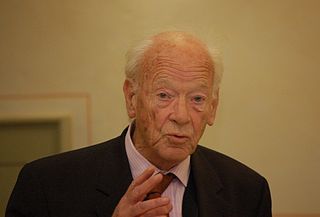
M. Rainer Lepsius was a German sociologist. A particular interest was in the work of Max Weber: he was prominent among the co-compilers of the (eventually) 47 volume edition of the Complete Works of Weber.
Christof Nel is a German theatre and opera director. He began his career as an actor but moved on to direct opera productions at major opera houses.
References
- 1 2 3 J. Hooper, "Ernest K. Bramsted (1901–1978): a European historian in Germany, England and Australia", Australian Journal of Politics and History, vol. 31, issue 3 (December 1985), pp. 397–407
- ↑ "Bramsted, Ernest Kohn (1901–1978) historian and sociologist of literature, alias Ernst Kohn-Bramstedt", The National Archives. Retrieved 5 February 2017.